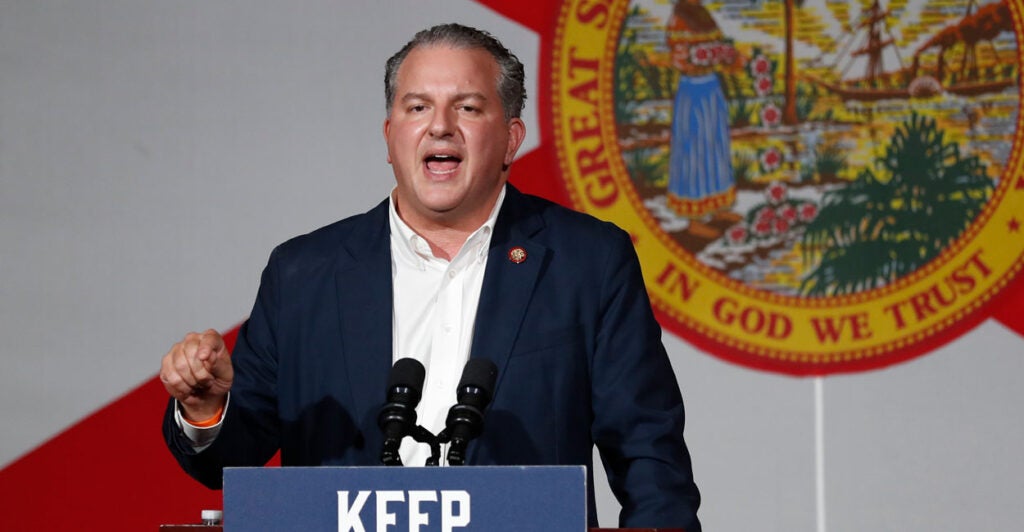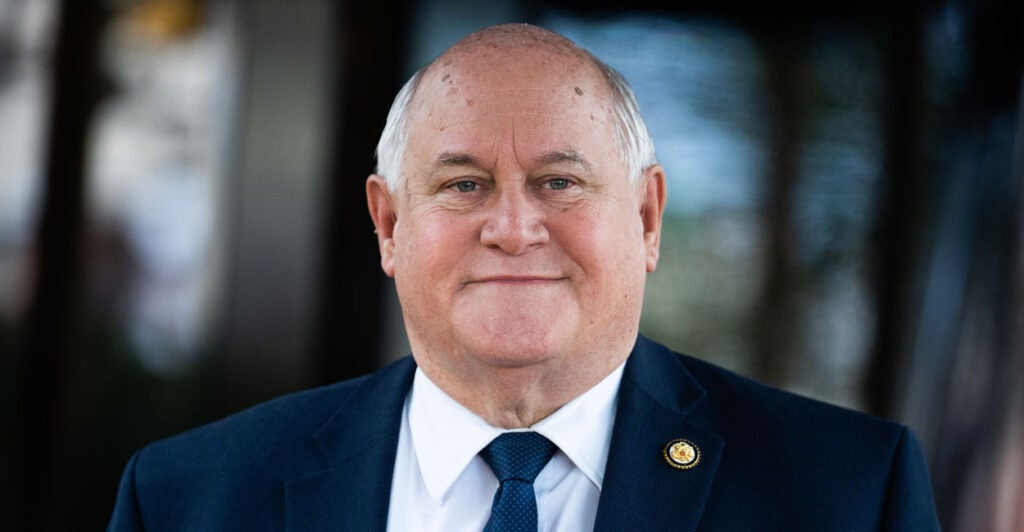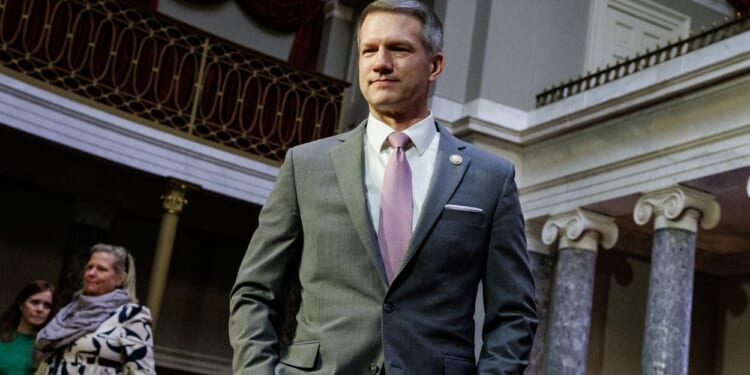Members of Congress come from all walks of life, but a number of those lawmakers have backgrounds as state financial officers—auditors and treasurers, who determine how states invest and employ their funds.
Some prominent Republicans say that background of conservative money management has made them uniquely motivated to curtail Congress’ spending.
On Wednesday, the State Financial Officers Foundation, a network of conservative state financial officers, gathered for a panel discussion in Washington to discuss how alumni are applying their experience on the state level toward fiscally conservative legislation in Congress.
Rep. Riley Moore, R-W.Va.
Rep. Riley Moore is a freshman in the House, but is already in a place of prominence as a member of the Appropriations Committee, which makes decisions on federal spending.
Moore, a nephew of Sen. Shelley Moore Capito, R-W.Va., told The Daily Signal that he draws on his experience as state treasurer of West Virginia in his work.
“It was hugely beneficial to me when I was making my case to get on Appropriations. I’m the only freshman Republican or Democrat on Appropriations,” he told The Daily Signal. “Had I not had that state financial officer’s background, I’m not sure I’d be on that committee.”
During his tenure as treasurer, Moore pursued pro-natural gas policies, such as divesting state pension funds from BlackRock for its use of environmental, social, and governance criteria in making investments.
West Virginia’s economy has historically relied on coal and natural gas.
He also worked with state legislators on passing legislation to blacklist financial institutions from doing business with the West Virginia government “if their policies conflicted with or boycotted the energy industry.”
In Congress, Moore has left his mark on the ongoing appropriations process in a similar way, introducing an amendment into the House’s financial services funding bill to clamp down on credit-rating agencies using ESG criteria, a policy he says has negatively affected his state’s bond rating.
His amendment would require the Securities and Exchange Commission to report on which agencies use ESG criteria in order to assist Congress in addressing the negative effects on states’ finances.
Moore also comes from a state that, like many others, has a balanced-budget amendment, meaning the state legislature has to make tough decisions on funding each year, and the state treasurer works within the parameters of those budgets. He says that drives him toward a fiscally conservative approach.
“At a state level, obviously we’re always doing more with less. That’s what we do. Right here [in Washington], it’s kind of the opposite,” he said. “I think being able to bring that perspective to the appropriation process is certainly something that’s beneficial, not just to the committee, but I think the country as a whole.”
Rep. Jimmy Patronis, R-Fla.
Rep. Jimmy Patronis similarly said it has been a culture shock coming from Florida, which has a balanced-budget amendment, to Congress, which has not passed a balanced budget in a quarter of a century.
Patronis was the chief financial officer of Florida before being elected to Congress in a special election to fill the seat vacated by former Rep. Matt Gaetz.

“The states have been able to be more disciplined, but it’s taken constitutional amendments in those states in order to force some of those policies to be the law of the land,” Patronis told The Daily Signal.
“Could we do that in Washington? It’s hard. One thing I’ve learned in Washington: People do enjoy spending money, and I come from a background being a small-business person, where I’m always trying to find ways to create profit, not to spend money,” Patronis said, adding:
I’m grateful for what I’ve brought up here to Washington, what I’ve learned, and just hopefully, we can find enough like minds where we can move the needle.
Rep. Ron Estes, R-Kan.
One of the most prominent alumni of the State Financial Officers Foundation is Rep. Ron Estes.
Estes serves on the House Ways and Means Committee, where all bills related to taxation originate.
He points to his time as Kansas state treasurer, working with limited resources, as a valuable experience.
“I think a lot of what you look at, just from a standpoint of what’s the role of government, you look at small, limited government and being able to provide people the opportunity to do what they want to without government dictating what to do,” Estes told The Daily Signal of his experience as state treasurer.

He added, “There are some functions and features that a government should do, but let’s make sure that they’re efficient and effective in terms of how we set up them up, how we make them work, how we make them apply to people.”
The Role on the State Level
The State Financial Officers Foundation is led by Marlo Oaks, the Utah state treasurer. Oaks told The Daily Signal that he continues to value the connections between the organization and its alumni on Capitol Hill.
“It’s really nice to have folks that have been in this role who understand what we’re doing at the state now at the federal level,” said Oaks.
But he added that, despite the important action in Washington, officials on the state level play a major role themselves in determining governance.
“They’ve clearly played a very significant role during the Biden administration, pushing back against the whole-of-government approach. That was one of the greatest over-exercisings of power in the history of this country … to push an agenda on this country.”
















